The next great transition will be to the Solidarity Economy with a mutual credit exchange system
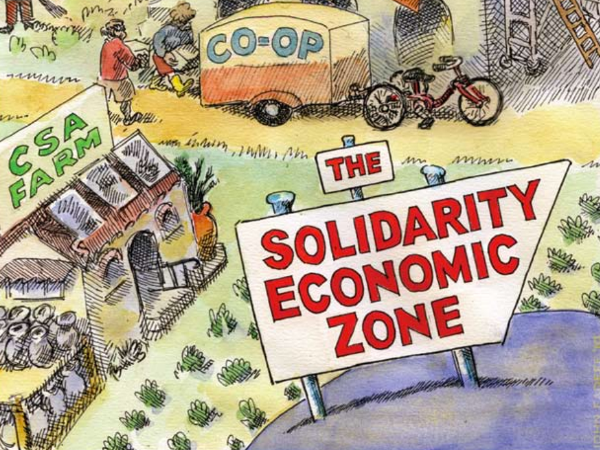
I’ve been working in the environmental field for over 20 years, and I believe, like the National Academy of Sciences of the USA, that we’re headed for ‘biological annihilation’, and like the good folk at the Dark Mountain Project, that a crash is coming that we may or may not recover from, but if we do, it will be at a much lower level of technology than the one at which we’re currently operating. Humans have destroyed habitat and devastated wildlife for thousands of years, but in the last couple of hundred, the size of our population and our economy has put so much stress on the biosphere of our home planet that we may have established patterns and processes that are already impossible to reverse. Attempting to extract so much from the biosphere means that we’re now in the latter states of a Jenga-type game that may cause our extinction when it falls over.
The best we can do now, I think, is to try to put things in place that will delay the inevitable, mitigate its effects, and provide the means for the continued survival of our species after it happens. Since 2001, Lowimpact.org has been building a network of specialists to provide information, books, courses, online courses, products and services to inspire and train the public to build natural homes, install renewables, grow things, forage things, make, fix, preserve and maintain things, so that as individuals, we might not be quite so helpless in a low-tech world.
We’ve helped many thousands of people to do these things, which is great – but it’s not enough, when:
- only a minority of people are interested, and the rest are distracted by ever-more sophisticated bread and circuses
- we have an economic system that is predicated on perpetual growth
- our economic system also perpetually concentrates wealth, which overflows into our political systems to ensure that ultimately, we don’t have the power to change direction.
System change is required, but not to the kind of system that so scares the right – centralised, big-state socialism – whether implemented by violence or by voting. The trouble with violence (if it’s not obvious already) is that people get hurt, and soldiers are required to seize power, then to re-distribute it. History has given us plenty of examples of the former, but none of the latter. Soldiers (of either left or right forces) don’t distribute power when they’ve seized it. If the 20th century taught us anything, surely it taught us that.
Voting and political parties aren’t the solution either – which would be fine if they didn’t take such an inordinate amount of our time and mental space. If we manage to elect a government that will genuinely challenge corporate power and distribute it to communities and individuals, it will be punished via capital flight. Corporations and corporate investors will not keep their money in countries that don’t roll out the red carpet for them. Why should they when they have so many other governments desperate to court them? A genuinely anti-corporate government will last one term, if that, before a pro-corporate government replaces them, and their policies. We will continue to steer towards disaster, tacking slightly left or right, depending on the flavour of party that won the last election. Not a solution in the long run. These problems are a stumbling block for the left – but not for a new system that is neither left nor right.
If we study the way in which the last great system transition happened – the one between feudalism and capitalism – we can see that it wasn’t down to violent revolution (the French Revolution was just the culmination of something that had happened peacefully and more thoroughly in England 100 years previously) and of course not down to parliamentary shenanigans. No, capitalism started to grow in the cracks in feudalism – providing the things that fedualism couldn’t or wouldn’t provide. The moneylenders and the merchants were not the most respected people, and the thought that given time, they would knock the monarchy, the aristocracy and the church off the top of the hierarchy would have sounded absurd at the time. As the late, great Ursula LeGuin said:
“We live in capitalism. Its power seems inescapable. So did the divine right of kings.”

And so it is in the cracks in capitalism – and there are plenty of them – that the next system will grow. And that next system will be the ‘Solidarity Economy’, whose productive units are non-hierarchical. Now this is currently a stumbling block for the right, who don’t believe that a non-hierarchical system is possible. This has become entrenched since the right’s latest darling, Jordan Peterson (although he says that he’s not of the right, and I believe him) has traced hierarchy, and the seratonin boosts that climbing it bring, back through 350 million years of evolution, to lobsters (human antidepressants work on lobsters, apparently). But that would mean that we can never achieve gender equality, because it’s never happened before, or that we can’t fly or travel underwater, because that’s not what we’ve evolved to do. He’s a fan of agency, but this is denying agency. We can build the kind of society we want, and I suggest that it should include gender and racial equality, but not hierarchy. Hierarchy and the attempts to climb it have brought us to the brink of extinction, and it’s time to jettison it.

But to reiterate, the next system will be neither left nor right – that is a battle that can never be won. The Solidarity Economy is free-market anti-capitalism. The hope is that the left will be attracted by the anti-capitalism, and the right will be attracted by the free market. And so they should – capitalism will expand until there is no room for a functioning biosphere, and then burst, almost definitely taking us with it. And a free market would be an excellent replacement for the extremely unfree market that we have now, dominated and twisted as it is by corporate and financial interests, with help from their state accomplices.
The Solidarity Economy is comprised of businesses and institutions that don’t extract wealth from communities, as corporate branches do. Examples include worker and housing co-operatives, community energy, community-supported agriculture, credit unions, free & open source software, community land trusts, self-employment and mutual credit (more on this last one later). These things have grown, and are still growing in the cracks. Wikipedia is a classic example of this. A seed was sown in a crack, and it has now grown to such a size that it appears impossible that any corporate entity will ever be able to profit from the world of encyclopedias ever again. The trick is to work out how to replace multinational corporations in all sectors of the economy.

The Solidarity Economy is already being built, and I know it will succeed because of the quality of the people involved. I intend to do everything I can to help them, and to try to persuade you to do the same. This is a huge step in the right direction, but I can already see that, again, it won’t be enough – because of the money system. I believe that we need a mutual credit exchange system attached to the Solidarity Economy, because money always concentrates, and is doing so now in the corporate and banking sectors, building up a fund that will be used to block the growth of alternatives.
As Douglas Rushkoff points out in Throwing Rocks at the Google Bus, modern capitalism is not about the production and sale of goods and services. That’s all very 19th century. Now, the derivatives market comprises over 90% of the global economy. The world’s most powerful algorithms, on the world’s fastest computers, owned by the world’s wealthiest investment houses, intercept bids from less powerful algorithms on slower computers, buy up their targeted stock a few nanoseconds before they get to it, then immediately sell it to them for a few pennies more than they would have paid had they got to the seller first. The few pennies don’t make much difference to each sale, but the combined reward for such activity globally is in the hundreds of billions.
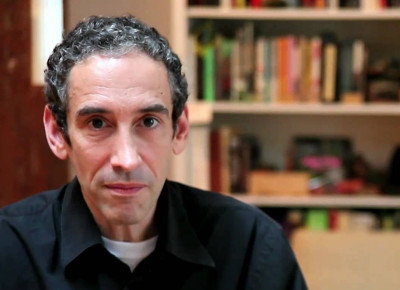
Meanwhile governments provide banks with monopoly powers to create money from nothing at all (we have zero-reserve banking in the UK), so that they can borrow from them to fund their ever-growing expenditure, and taxpayers pick up the bill for the interest. This same monopoly power allows banks to charge 300k interest on a 300k mortgage, and demand the interest first. This is a bizarre way to run an economy, and it has concentrated enormous power in the corporate sector, and especially the banks. Indeed, it was designed to do just that. Trump’s cabinet – the boardroom of the world – is filled with moneylenders and merchants, not educators, artists, scientists, judges, philosophers or doctors.
I’ve read, in great detail, ideas put forward by superb people to replace this absurd system with one that provides an exchange mechanism that doesn’t allow wealth to be creamed off by banks, corporations and professional politicians with seats on corporate boards. Murray Bookchin’s libertarian municipalism, and Michael Albert’s Parecon systems are tours de force that could indeed seed and grow in the cracks in capitalism – that is, if they weren’t so complicated, and if they didn’t involve endless meetings. Now, how many of you relish weekends and evenings with community meetings on how to allocate resources? Exactly.
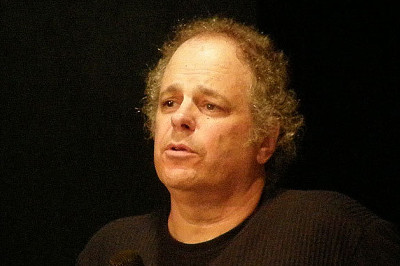
Over the last year or so, I’ve discovered mutual credit. I read Tom Greco’s The End of Money and the Future of Civilisation, the Credit Commons White Paper by Matthew Slater and Tim Jenkin, and I participated in the Money and Society MOOC. I’ve become convinced that this idea, or something very much like it, will become the money system for the Solidarity Economy, and that the Solidarity Economy will be the thing that grows in the ever-widening cracks in capitalism to eventually replace it.
Tomorrow on this blog, I will be interviewing Matthew Slater, one of the authors of the Credit Commons White Paper. Here is a basic primer for mutual / collaborative credit, but I will be asking Matthew more in-depth questions about how it might work, how we spread it, how it can provide the means of exchange for the Solidarity Economy and what we can do as individuals to help. You can join in too, in the comments section, and in a webinar that we’ll be running about the mutual credit idea. We’ll run this on March 10th. More details tomorrow.
The views expressed in our blog are those of the author and not necessarily lowimpact.org's
34 Comments
-
1Amanda James February 26th, 2018
Dave Darby your words are such sweet music to my ears. They make a whole of what I have unknowingly been looking for for so long. Gradually I have been piecing a life together that I am starting to become happy with and that includes Low Impact (thank you Sophie Paterson for reintroducing me), the Centre for Alternative Technology, Wu Wei Wisdom, the School of Natural Building and permaculture amongst others. I have so much to learn, but it is so good to find people looking for non hierarchical, co-operative, caring ways of working.
-
2Grandfather Michael February 26th, 2018
Dave you have articulated the issue with great skill and as a visionary.
In the passage of time a factor to be aware of is A.I. and how it will be manipulated by the faceless industrial giants to protect capitalism. Any thoughts?
Manipulation will also be tried between those of the human population who continue to divide with words like foreigners, us and them, and we’re right you’re wrong. so decision making structures require careful thinking. Its as if we are talking about an evolutionary shift from homo sapiens sapiens if as a species we have a hope of survival.
I am passionate about this if for no other reason than I know about it and I don’t want the children of the future to say ” Grand dad knew this but did nothing about it”
I place great emphasis on the human species changing its relationship with Nature as one of if not THE key factor in this process.
-
3Dave Darby February 26th, 2018
I’ve tried to follow lot of ideas through to their logical conclusion, and and none of them will change anything, and a lot of them will make things worse. This is the only coherent, implementable, rational plan, that could make things better, as far as I can see. And it’s already happening. It would be a crime not to help them. What’s the worst that could happen?
-
4Dave Darby February 26th, 2018
I think the corporate sector might come unstuck if they keep up the AI arms race. People working in the industry are saying that at some point, AI will start re-writing its source code in ways that humans can’t understand, and that will be the next evolutionary step – just silicon-based rather than carbon-based. That’s a learning curve I’m never going to climb, so all I can do is acknowledge what they’re saying. They’re not cranks, they’re respected people in the field.
But this is where philosophy comes in – the kind that anyone can do, not just academics. So – does it matter if the next evolutionary step is silicon-based? The carbon gang hasn’t done very well, really. Maybe handing over the baton is the thing to do.
But failing that, yes, better governance – but without political parties and professional politicians. And without all the state apparatus of force. We can base the Solidarity Economy on local nodes – networked, not centralised, and not in a hierarchy. Or at least, if it’s something that looks like a hierarchy, the participants can’t claim permanent places in it, and they can’t buy their way up it.
And mutual credit can’t be based on anything but local nodes.
‘I am passionate about this if for no other reason than I know about it and I don’t want the children of the future to say ” Grand dad knew this but did nothing about it”’ – yeah, exactly.
-
5Dil Green February 27th, 2018
I am (as you know) with you on mutual credit being an important avenue for development of sustainable alternatives; mutual credit, once it becomes part of your life (it doesn’t need to rule the world, just feel real), has the capacity to support aspects of a different worldview – one which can begin to undermine the messages capitalism has reinforced in our culture for centuries – so that it seems meshed into the fabric of reality.
Jordan Peterson is a perfect example of this. He wants to tie high-level human behaviour (public morals) into low-level human biology (lobster nervous systems), and tell us that biology is destiny – that certain ways of being simply cannot be sustained. There are two major problems with this:
First, that cutting edge science (and neuroscience is very definitely in its infancy, with huge doubts about replicability and validity of foundational experiments and theories) is always clouded by current cultural outlooks – new understandings are impossible to frame outside the culture that produces them. So that biologically determined modes of psychological comfort that support the imperatives of a capitalistic culture should not be taken at face value: the same experimental findings, in a different cultural setting, would be interpreted differently.
Second, that any attempt to suggest that, for humans, biology=destiny is obviously wrong. For example: the pre-eminent biological impulse is procreation – this is, after all the mechanism whereby evolution occurs; all life that has persisted has done so because it has procreated. So from a biology=destiny position, the existence of tibetan buddhist society over many centuries is impossible – because this was a culture where the best and brightest became celibate monks and nuns.
For individual humans, culture is almost always more immediately important than nature. This is not to say that culture beats nature; nature is, after all, the material with which culture works. The metaphor that captures all of this, for me, is this; that culture is a hall of mirrors for nature. Nature is the foundation of everything – but at the same time, if a myth (framing, worldview, culture, philosophy, ideology – call it what you like) works for a group of people, that myth can distort nature into almost any new shape. And further, if such a distortion persists, it can find its way into the genetic reality that is nature.
The taming of fire by humans was certainly a cultural, not a genetic event. And yet there are strong suggestions that the more efficient digestion possible with cooked food supported a massive increase in brain size in humans. Culture transformed nature.
So the question for us, is whether we wish to develop our culture in directions that seem more sustainable – or meekly accept that we are born to be greedy individualists, and that humans are a doomed species.
I’m for daring to dream, for working for transformation, for transcending stories about biology that limit what I can hope for – particularly those stories which are a suspiciously neat fit for the capitalist culture we live in.
-
6Dave Darby February 27th, 2018
I quite liked Jordan Peterson initially – because he’s entertaining, and I found myself agreeing with and/or being educated by, the things he said. But then I came across a couple of videos in which he said ridiculous, but very familiar things. For example – never mind any damage that we’re causing to the biosphere. Human ingenuity and technology will sort all that out. Julian Simon was saying things like that a few decades ago, and Mark Lynas is saying them now.
The man is a psychologist. I think his new-found fame might have gone to his head, so that he thinks he knows more about ecology than ecologists. The problem is that the wrong decisions when it comes to the biosphere could prove fatal, rather than losing some people a bit of money. This isn’t trivial, and he shouldn’t trivialise it by claiming to support rational thinking, then ignoring what scientists are saying in their specialist field.
It’s not ‘rocket surgery’, as he joked in one of his videos. He criticises people whose ideology permeates everything they say, but comes out with this kind of hackneyed stuff – suspicious, as you say. I haven’t seen it, but I can now imagine him twisting things to suggest that the extreme concentrations of wealth that the current banking system produce don’t spill over into our political system and corrupt it.
-
7Mike Riddell (mikeriddell62) March 8th, 2018
Good work Dave. Greco’s “Future of Money, the End of Civilisation” is my go-to reference book on mutual credit systems. It’s all laid out there.
The only thing I’d suggest a slight tweak to your suggestion of “free market anti-capitalism”. I’d frame it a tad more positively as “free market social capitalism”.
With you all the way on this, brother!
-
8Dave Darby March 8th, 2018
Thanks Mike. I actually stole ‘free-market anti-capitalism’ from Kevin Carson – see http://mutualist.blogspot.co.uk/. I use it for effect, because those two terms are never used together, so people remember it. Carson wrote ‘mutualist political economy’, ‘organisational theory’ and ‘the homebrew industrial revolution’, and he’s got a new one out i’ve forgotten. Also youtube interviews. You’ll like him.
-
9marlyn morgan March 11th, 2018
Dil Green ! wow. More please.
-
10marlyn morgan March 11th, 2018
free market social capitalism, yes ! lets keep it pro-active
-
11Dave Darby March 11th, 2018
The point is that the slogan ‘free-market anti-capitalism’ is a balance of right and left positions that catches the eye. Free-market social capitalism sounds right-wing to me, maybe with a bit of bogus ‘corporate social responsibility’ thrown in. And besides, capitalism is anti-social.
-
12roselle angwin March 13th, 2018
Excellent article, thank you.
For those dissenters to the notion of anti-capitalism: capitalism is specifically built on growth (I blame the Neolithic), and the possibility of more growth (in the unlimited way that the ‘old growth’ has happened) simply isn’t possible on a small planet with finite ‘resources’ (a word that reinforces hierarchy, so we need to rethink that too).
We need to find ways of moving sideways, somehow, co-operating in small collectives, and this has to begin with examining our true deep-down values in relation to worth – intrinsic worth, that is, surely?
-
13Dave Darby March 13th, 2018
Roselle – yes, it has to grow forever, like a cancer; and it always concentrates wealth in few hands – which means that it can never be sustainable or democratic.
But the co-operating in small collectives thing – yes, but with a proviso, that must be stated clearly, imho. Membership of those collectives must be entirely voluntary, and self-employment / independence must be possible – ie is someone wants to be left alone to be a smallholder or a craftsperson, that has to be fine.
It’s certainly fine with the solidarity economy, but it hasn’t been at all fine with some historical left regimes. The thought of compulsory collectivism will scare the poo out of the right (and out of me, to be honest), which will mean it won’t be implementable, because half the world will be fighting against it.
Hence the ‘free-market’ part of ‘free-market anti-capitalism’. Let’s demonstrate to the right that freedom doesn’t have to be sacrificed in the attempt to prise power away from the banks. The banks are as unpopular on the right as they are on the left – and possibly more so. There was more opposition to the bail-out from the right, for example – let ’em die, was the attitude of a lot on the right, especially at the more libertarian end of the spectrum.
-
14roselle angwin March 16th, 2018
That’s a good argument, Dave. But I certainly wasn’t thinking in terms of communist ideology – say – as an alternative. I think we’ve outgrown both capitalism and communism, and something new may yet be in the wings.
Something along the lines of yes voluntary collectives, yes, made up of self-employed/independent members maybe; a loose network that is in some way self-regulating and obviously synergistic (no idea how that would arise, and I imagine there will be a financial crash first).
I worked (when I was a shoemaker) for many years in a makers’ collective of 17 independent individuals; we worked from a mill building that was open to the public; we determined our own hours within reason; we had a joint shop outlet and a voluntary/nominated steering committee and were otherwise self-determining within that, and it worked extremely well. I could cope with that but would hate being co-opted myself.
I have reservations about the ‘free market’ tag and its links with neoliberalism, but I’m open to being educated as to why it might be a good thing?
-
15Dave Darby March 17th, 2018
Hi Roselle
‘I worked (when I was a shoemaker) for many years in a makers’ collective of 17 independent individuals’ – wow, I’d love to interview you for a blog article about that.
The thing is, the market in neoliberalism is anything but free. It’s manipulated by the corporate sector in so many ways – from the lobby industry and political donations to ‘the revolving door’, tax avoidance, the ability that banks have to magic money from nothing and charge us interest on it, the fact that corporate algorithms cheat (https://www.lowimpact.org/worse-think-review-douglas-rushkoffs-throwing-rocks-google-bus/) and ultimately, the fact that taxpayers will bail them out when it all inevitably crashes, and they foreclose on the least well off among us. That’s an ugly, and very unfree market.
But humans have always exchanged goods and services, and two people doing so on equal terms, not making money out of anyone else’s work but their own – that’s a truly free market.
Also, I think it’s very important to make it clear to the right that what we’re talking about is not statism or centralised control, and to the left that it’s not capitalism either. It’s genuinely a new system.
-
16roselle angwin March 19th, 2018
Ah now that I’m completely in agreement with you on, Dave. A genuine ‘free market’ is a very different construct from what’s named such in our economy, and that’s how much of my work worked for the 18ish years I was a maker (am now a freelance writer and organise and facilitate courses loosely aimed at, I suppose, increasing creativity, awareness and choice in how we live, especially in relation to the other-than-human and our impact on it).
Yes, am completely with you in your last statement, too. And thanks for the ‘cheating algorithms’ link – didn’t know about that.
Blog piece on the makers’ collective? Would be v much up for that, though you need to know that was way back in the last century! (The 80s mainly.) FYI: I wrote a little more about the makers’ collective and more specifically on my experience of the barter economy in my reply to Eloise’s article last week on this site. (Also NB that the article in Triarchy Press on our debt-based economy and Positive Money’s proposals to which Eloise linked was written by my partner!)
-
17Mike Riddell (mikeriddell62) March 19th, 2018
You can’t ignore the fact that we are in a market economy. Trying to buck the system is not very resourceful. Better off with a hack. Hack the markets beginning with social value.
-
18roselle angwin March 19th, 2018
Mike – why do you see this as ‘bucking the system’? Is it not rather a social experiment to show that there are alternatives, albeit currently small and low-key?
We know that community endeavours can drive change. (Look at what’s happened in Frome – where community schemes are having a significant impact (on a small-town scale) on numbers of people using NHS services.)
We need visionary models to effect real change, not simply more of the same on the current capitalist terms.
-
19Dave Darby March 19th, 2018
Buck, hack, whatever it takes to grow the Solidarity Economy (which is still a market economy). But it’s important to identify what is and isn’t the Solidarity Economy. Organisations promoting corporate social responsibility are not fellow travellers. Corporations wouldn’t pay good money for CSR if it wasn’t improving their bottom line, and therefore strengthening capitalism.
‘System change’ can be understood as replacing a system or improving a system, but building something to replace capitalism is the only viable option, imho, and I think that many on the left who think that capitalism can be ‘improved’ in some way are missing a vital point – that power is concentrated in banks and corporations. Expecting them to be effectively regulated by any existing institutions is just wasting time – which is why damage to the biosphere continues to get worse, conflict and war continues (because it’s extremely profitable), and wealth and power continues to concentrate in the corporate sector – especially the banks.
Capitalism and the market are not synonymous (hence ‘free-market anti-capitalism’), and capitalism is always extractive, exploitative and unsustainable. If it stops being those things, it’s not capitalism any more.
-
20Mike Riddell (mikeriddell62) March 20th, 2018
Roselle I completely agree. Here’s a blog about our experiment in the Potteries (North Staffs): https://www.thealternative.org.uk/dailyalternative/2018/3/17/editorial-society-needs-a-new-operating-system
Dave, I don’t disagree with the end-result you want to secure, it’s just that I’m anti the word ‘anti-‘!
As for corporates, well (a) they’ve got what deprived people haven’t – money. So let’s persuade them to invest in a new social impact investment product called community (beginning with failing shopping centres that become centres of excellence for the arts and social enterprise) or community credit schemes that create wealth by enabling people without work to barter their time for a company’s resources that would otherwise be wasted.
The solidarity economy is also the networked or sharing or experience economy. Whatever we call it needs to be more resourceful and to become more resourceful it needs a shift in the way assets are valued.
If we do that – by defining clearly and measuring simply the things ordinary people value and appreciate – like being valued for one’s contributions to community, then we’re in with a shout.
We need to put a ring through the nose of the bull on wall street and get some little girl to walk it somewhere nice!
?
-
21Dave Darby March 20th, 2018
Capitalism has to grow perpetually, which destroys the biosphere, and it always concentrates wealth, which prevents democracy. If you remove those properties, you’ve removed capitalism, which is fine by me. Whether we use the term anti-capitalism or not is irrelevant, but capitalism has to be replaced by a system that can be stabilised. Capitalism can’t. If polls showed that ‘free-market anti-capitalism’ was a turn-off for most people, then sure, let’s not use it. But I think its incongruity is funny, but in a serious way – it emphasises a ‘solidarity’ economy that is not capitalist, but that isn’t communist, statist or centrist either.
But the Solidarity Economy is not intended to sit alongside capitalism somehow – it’s intended to replace it. Capitalism rewards people for other people’s work. Everyone has to work longer hours than necessary in order to pay capitalists their profit, interest and rent. The corporate sector won’t spend money on anything that they don’t think will improve their bottom line in the long run. I want the Solidarity Economy, not Solidarity Economy plus – i.e. with added corporate capitalism. That can never be sustainable or democratic. This is what we’ll be launching soon Mike – https://www.noncorporate.org/. Are you sure we want the same end result?
-
22Mike Riddell (mikeriddell62) March 21st, 2018
You tell me? I just want people to #BeKind. Nothing more, nothing less. Do you?
-
23Dave Darby March 21st, 2018
Forgive me if I’ve got the wrong end of the stick here Mike, but are you responding to a debate with hostility? I said nothing unkind.
-
24Dave Darby March 22nd, 2018
Could do with some advice from anyone actually, or I might knock this into a blog article.
I keep meeting people who think that ‘corporate social responsibility’ is a good thing, and when I try to point out that it will actually strengthen the corporate sector (that’s why they pay people to do it), we often end up falling out.
I’m getting so tired of it I’m thinking of just shutting up about it. But I think engaging with the corporate sector is dangerous. It’s easy to imagine people thinking that a very young FB or Uber were good ideas, and might actually encourage sharing. But once they get a strong position, they can extract at will and can’t be removed.
So many people have said that corporate social responsibility / b-corps are good ideas – ‘steps in the right direction’ and I completely disagree. They make people on the cusp / unsure think that corporations are actually socially or environmentally responsible, which they aren’t and never will be. They prevent the solidarity economy from gaining market share, which is the exact opposite of what I’m trying to do.
But I don’t want to fall out with good people, so I feel a bit stuck.
-
25Alan Cottey March 23rd, 2018
Environment Change, Economy Change and Reducing Conflict at Source.
Perhaps this open access article which has recently come out online, at http://link.springer.com/article/10.1007/s00146-018-0816-x , may be of interest. From a few points of view – the sources of conflict, what I call economy change, and the importance of language in framing thought and debate.
-
26Dave Darby March 24th, 2018
Hi Alan – that’s just too huge for me to consume at the moment – already working evenings and weekends, and have an enormous reading / video list. I’m sure lots of other people are in the same position. Do you have an ‘elevator pitch’ – including, essentially, what we could actually do, in simple terms?
-
27Alan Cottey March 25th, 2018
Ok, Dave, that article does cover a lot. Here is my shot at an ‘elevator pitch’ –
There was deep and widespread concern about the environment in the ’70s. What happened? It was undermined by ‘backlash and accommodation’ (a useful phrase from David Peterson del Mar). True, some people still pursue constructive ideas, such as basic income, work defined as all useful activity (my paper), your Solidarity Economy. But, as you say yourself, too little traction is gained. It is really important to try to understand WHY?
I think that mainstream discourse normalises business-as-usual and marginalised meaningful challenges. You ask what could we actually do. In my opinion unpicking conventional economic language is central and does count as ‘doing’.
Oh yes, and please don’t shut up about corporate social responsibility. Here is one person who agrees with you. It’s a perfect example of Peterson del Mar’s ‘accommodation’.
-
28Dave Darby March 25th, 2018
Agreed. Plus undermining the nonsensical nature of fundamental economic principles like perpetual growth.
Thanks for the support on corporate social responsibility. If the Solidarity Economy is going to gain market share, basic maths tells us that the corporate sector is going to have to lose market share. They really don’t want that, and they have lots of tools to try to stop it happening – like the lobby industry, political donations, the revolving door, the media, the advertising industry etc. And crucially, corporate social responsibility. They pay environmental graduates a lot of money to manipulate their image. CSR is not a ‘step in the right direction’, which is something I keep hearing – it’s a tool to help the corporate sector try to hang on to market share.
-
29roselle angwin March 26th, 2018
Thank you, Alan. That’s clarified my own questions around it too.
-
30Andrew Rollinson March 28th, 2018
Alan,
I read, and liked, your journal article. It is always nice to see the Jevons Paradox getting mentioned, and I particularly liked the use of Shelley’s Ozymandias; plus it is refreshing to read an academic author not conforming to the establishment view with their impact orientated, industry sponsored, funding of research. You will find many blogs related to your work in these webpages.
Dave,
I also concur with Alan. Don’t stop talking about corporate social responsibility, for I too believe that you are right. It is a fact that many people hold onto their notions like a lifebelt and do not like to give them up to move into a deeper, clearer understanding. This is one of the problems that we have with regard to environmental topics and, although not mentioned by Alan, it is pertinent to his “moving away from economy-as-usual”. I have mentioned this before, but pedagogy theory explains this: see threshold concepts (Meyer and Land, 2003), and troublesome knowledge (Perkins, 2006). A brief, overview is here (from paragraph 3 onwards): https://onlinelibrary.wiley.com/doi/full/10.1111/j.1471-1842.2010.00880.x
Andrew
-
31Dave Darby March 28th, 2018
Thanks for the support guys. I’m going to focus much more on helping to build the solidarity economy in future, so I won’t stop talking about CSR – it’s just a tool they’ll use more and more to try to maintain market share. I don’t think it will work though, because actually, without state support, they couldn’t maintain their dominance. There are no ‘economies of scale’ really – without tax avoidance, bailouts, sweatshops, giant infrastructure projects paid for by taxpayers, and I don’t think that these things are sustainable.
-
32SteveU March 31st, 2018
Dave, I’m still exploring this area and the ideas floated (and also attended the MOOC). I’m currently reading ‘Doughnut Economics’ by Kate Raworth. She discusses the use of terminology and the use of pictures – I find the ‘Doughnut’ concept attractive and its one that is likely to be meaningful to most people and I wondered if you had read this book yet and (if so) what your thoughts on it are.
-
33Dave Darby April 6th, 2018
Haven’t read it, but seen a couple of videos by her. Good stuff, but I didn’t hear her say definitively that we need to stabilise the global economy – it was more about the ‘quality’ of growth. But that doesn’t take into consideration the fact that if even the most ethereal sector grows, then salaries and therefore spending power in that sector will grow, and there’s no mechanism to stop that extra spending power being spent on material things – and that’s a killer. I could be wrong – does she say that we need a stable economy?
-
34Ray Bowler May 3rd, 2018
I am very pleased to hear this debate, such social mindedness is a tonic. I’ve been about the alternative world for many years. Money, where it comes from, who makes it has been a chief topic for a long time. I’ve met and talked to Margaret Kennedy and the Regio Gelt Organisation about reigonal currencies in Germany, they have much deep understanding on the subject. I have my own project in Cornwall, an eco art centre, its a bit third world but brings in people together that I’m happy to know. These people love the place and its spirit, but they would never do it themselves.
What I see is a lot of ideas but not much to show for it. I set off 20 years ago to make a community, I found lots of reasons to avoid commitment, I have my need for privacy you see. I, now we, haven’t found a good way to relate or a good structure to hold it and I think these things are essential before all the rest.
I believe real change will only come when there is no choice, frankly, until all institutions are burning nothing will change, they will always look after their institution before the members. This is a bit nihilistic but is it unlikely? Jung spoke of individuation as our goal, personal sovereignty, like the Vedic Russ before the Christian Royalty arrived 1000 years ago.
I believe the rupture will come, there will be betrayal, there will be grief, there will be panic to teach us how to be sovereign of ourselves, in the meantime keep exploring because it is only by asking that we learn.
I could go on, perhaps an open space would be a good idea, but not at the exorbitant rates of the Schumacher college.





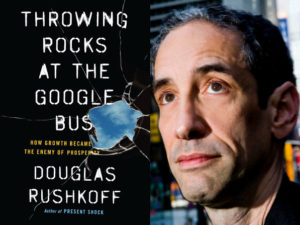 It’s worse than you think: review of Douglas Rushkoff’s ‘Throwing Rocks at the Google Bus’
It’s worse than you think: review of Douglas Rushkoff’s ‘Throwing Rocks at the Google Bus’
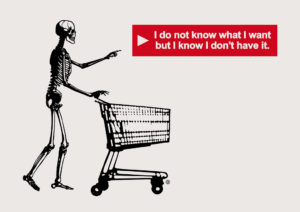 Buying green: is ethical consumerism a perfect distraction?
Buying green: is ethical consumerism a perfect distraction?
 Interview with Matthew Slater: what’s mutual credit, how can it boost the Solidarity Economy, and what can we do to help? (plus webinar)
Interview with Matthew Slater: what’s mutual credit, how can it boost the Solidarity Economy, and what can we do to help? (plus webinar)
 Who can afford artisan goods? For truly green businesses, we have to kick the money habit
Who can afford artisan goods? For truly green businesses, we have to kick the money habit
 Why the banks have so much power and how we can take it away from them
Why the banks have so much power and how we can take it away from them
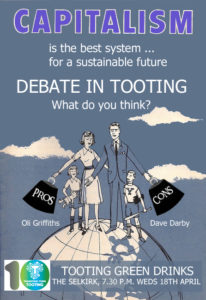 Public debate featuring yours truly: is capitalism the best system for a sustainable future?
Public debate featuring yours truly: is capitalism the best system for a sustainable future?
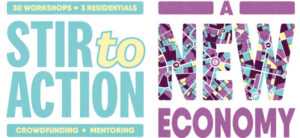 Campaign launched to build a ‘new economy’ through a practical programme of workshops, mentoring, and live crowdfunding
Campaign launched to build a ‘new economy’ through a practical programme of workshops, mentoring, and live crowdfunding
 The two roads to serfdom: how neoliberals misrepresent Hayek
The two roads to serfdom: how neoliberals misrepresent Hayek
 Jordan Peterson talks some sense, but he’s wrong about two very important things
Jordan Peterson talks some sense, but he’s wrong about two very important things
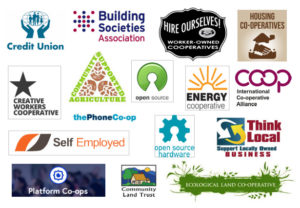 Announcing the launch of NonCorporate.org – how to move away from multinational corporations
Announcing the launch of NonCorporate.org – how to move away from multinational corporations
 What does the future look like for community energy? Interview with Jon Hallé of Sharenergy
What does the future look like for community energy? Interview with Jon Hallé of Sharenergy
 What do we do about the coming ecological crash?
What do we do about the coming ecological crash?
 Building societies
Building societies
 Co-operatives
Co-operatives
 Commoning
Commoning
 Community
Community
 Community energy
Community energy
 Community land trusts
Community land trusts
 Community-supported agriculture
Community-supported agriculture
 Credit unions
Credit unions
 Farmers' markets / direct farm sales
Farmers' markets / direct farm sales
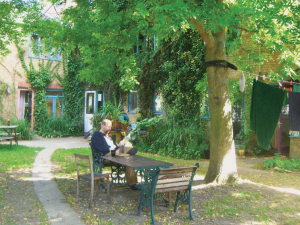 Housing co-operatives
Housing co-operatives


